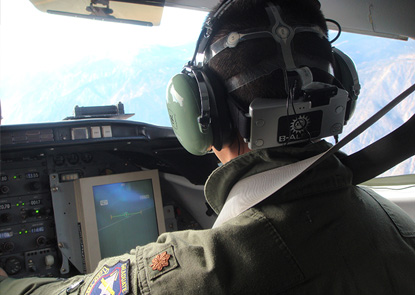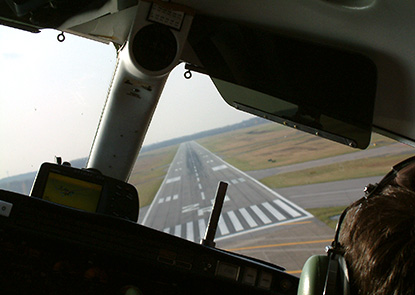Handling Qualities
Our handling qualities expertise spans the full range of aircraft from fighters and hypersonic vehicles to business jets.
The study of aircraft handling qualities has been a core area of expertise for Systems Technology since its inception, including participation in the development and evolution of fixed wing, rotary wing, and V/STOL military specifications and the background information and user’s guides. Work has included the development, analysis, and verification of new criteria, revisions to existing specifications, creation of a fixed wing catalog of demonstration maneuvers, and participation in the creation of the first mission-oriented handling qualities design standard (ADS-33, Handling Qualities Requirements for Military Rotorcraft). Repositories of handling qualities data were created for aircraft (NASA CR-2144, 1972) and for helicopters (NASA CR-3144, 1979) that remain in use for aeronautical research and development decades after their initial publication.
Independent assessments
Systems Technology has conducted independent handling qualities assessments for a wide variety of vehicles including fighters, transports, business jets, helicopters, tilt rotors, airships, and hypersonic vehicles. Examples of specific vehicles include: X-15, X-29, X-31, XV-15, T-38, T-45, B-1, F-4, F-8 DFBW, F-8 Oblique Wing, F-14, F-16, F/A-18, F/A-18 HARV, C-17, CH-53E, RAH-66, UH-60, V-22, L-1011, SR-71, NASP, and the Space Shuttle.
Areas of engineering consulting and research
Past and ongoing areas of consulting and research include: aircraft ground handling, describing function analysis methods, fly-by-wire flight controls, cockpit inceptor characteristics, human operator models, loss of control mitigation, nonlinear flight control elements including rate limited control surface actuators, pilot-induced oscillations, pilot workload, relaxed longitudinal stability, roll ratchet, simulator fidelity, and UAS requirements. Recent advances include the use of wavelet transform signal analysis techniques to characterize the pilot input, and the use of psychophysiological measures to estimate pilot cognitive workload both in flight and in the simulator.
Systems Technology is available to support Handling Qualities studies, including piloted simulation and flight test support, evaluation of requirements as part of a certification effort, the selection of requirements to use as part of a design effort, and the development of new requirements as needed for new systems including unmanned systems.
Download Systems Technology Publications:
– Aircraft Handling Qualities and PIO
– Aircraft Ground Handling
Recent handling qualities flight test investigations have included the first of its kind EEG/ECG-based measures of cognitive pilot workload and assessment of loss of control mitigation concepts.

